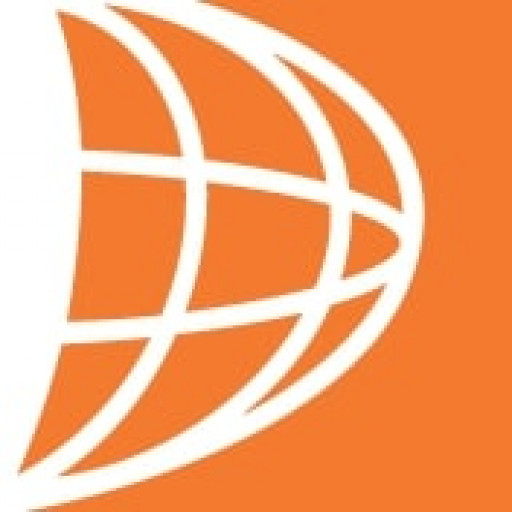Photos of university / #tudelft
The Engineering and Policy Analysis master's programme at Delft University of Technology is a multidisciplinary program designed to equip students with the analytical tools and practical skills necessary to solve complex engineering and societal challenges. This innovative programme combines engineering expertise with policy analysis, enabling graduates to develop strategic solutions that are technically sound and socially responsible. Throughout the programme, students explore a wide range of topics including systems analysis, decision-making, sustainability, and innovation management, preparing them for leadership roles in various sectors such as government, industry, and consulting. The curriculum emphasizes interdisciplinary approaches, combining engineering sciences with social sciences and economics to foster a holistic understanding of technological impacts on society. Students engage in project-based learning, real-world case studies, and collaborative research activities, often working closely with industry partners and policymakers to develop feasible and sustainable solutions. The programme offers specialization tracks in areas such as energy transition, urban planning, and systems engineering, allowing students to tailor their education to their specific interests and career aspirations. Graduates of this programme are well-equipped to analyze complex policy issues from both technical and societal perspectives, design innovative engineering solutions, and contribute effectively to policymaking processes. The Delft University of Technology’s strong emphasis on innovation, sustainability, and societal impact ensures that students are prepared to meet the demands of an increasingly complex and interconnected world. With its comprehensive training and extensive network of international partners, the Engineering and Policy Analysis programme provides a unique platform for aspiring engineers and policy analysts to develop their expertise and drive positive change globally.
The MSc in Engineering and Policy Analysis at Delft University of Technology offers a comprehensive interdisciplinary curriculum designed to prepare students for tackling complex societal challenges through innovative engineering solutions and effective policy development. The programme equips students with advanced analytical tools, technical expertise, and understanding of policy frameworks necessary for shaping sustainable and resilient infrastructural, environmental, and technological systems. Throughout the programme, students engage in a blend of theoretical coursework, practical projects, and policy-oriented research, enabling them to analyze, model, and evaluate the implications of technological innovations within societal contexts.
The core courses cover essential topics such as systems analysis, decision-making under uncertainty, economic evaluation, risk assessment, and strategic planning. Additionally, students explore specialized subjects related to sustainable energy systems, water management, transportation, and urban development. The programme emphasizes developing skills in cost-benefit analysis, multi-criteria decision analysis, stakeholder engagement, and ethical considerations in policy-making processes. A significant component of the programme involves working on real-world cases in collaboration with industry partners, government agencies, and research institutions, which fosters practical experience and professional development.
Students are encouraged to critically assess the societal impacts of engineering solutions and to design policies that promote innovation while ensuring inclusivity and environmental sustainability. The interdisciplinary nature of the programme integrates perspectives from engineering, economics, social sciences, and public administration, fostering a holistic approach to problem-solving. Graduates of the MSc in Engineering and Policy Analysis are well-equipped to work in consultancy, government agencies, international organizations, or research institutes, where they will contribute to designing and implementing policies that shape future technological developments with societal benefits in mind.
The programme also offers opportunities for specialization through elective courses and a master's thesis that allows students to conduct in-depth research on a topic aligned with their professional interests. As part of the Delft University of Technology's innovative and collaborative learning environment, students benefit from state-of-the-art laboratories, workshops, and access to a global network of experts. Ultimately, the MSc in Engineering and Policy Analysis prepares graduates to become leaders in engineering policy, capable of making informed decisions that address pressing societal issues today and in the future.
Admission requirements
Check the website for more information about the admission and application procedures.
Other requirements
- cijferlijst Check the website for more information about the admission and application procedures.
- minimum kennis (ISPAC: overige vereisten) See: www.master.tudelft.nl
- vooropleiding (ISPAC: vereiste vooropleiding) BSc degree (or equivalent) of a good quality higher education institution.
- schriftelijk verzoek Check the website for more information about the admission and application procedures.
- gemiddeld cijfer Check the website for more information about the admission and application procedures.
Financing studies for the Master’s programme in Engineering and Policy Analysis at Delft University of Technology encompass a variety of options designed to support international and Dutch students financially. Tuition fees are a significant component, with Dutch students paying a lower rate compared to international students. For Dutch students, the tuition fee is approximately €2,314 per academic year, while international students are required to pay around €18,750 per year. These fees cover the costs of instruction, access to university facilities, and learning resources.
In addition to tuition fees, students should consider living expenses, which include accommodation, food, transportation, and personal expenses. The estimated living costs in Delft range from €900 to €1,200 per month, depending on lifestyle and housing choices. Many students finance their studies through a combination of personal savings, family support, scholarships, grants, and student loans.
Delft University of Technology offers several scholarship programmes for both Dutch and international students. For international students, the TU Delft Excellence Scholarships are available, which can cover full or partial tuition fees, and sometimes provide a monthly stipend to support living costs. These scholarships are highly competitive and require a strong academic record, relevant motivation, and, in some cases, proficiency in English.
Dutch students and those from the European Union may also be eligible for government loans and grants, such as the Dutch Student Loan System (Studiefinanciering). Non-EU international students may seek funding through their home country's scholarship programmes, international organizations, or private foundations.
There are also external funding options such as the Erasmus+ programme for students from participating countries, offering grants for mobility and exchanges. Additionally, many students employ part-time work during their studies to supplement their income; however, work hours may be limited depending on visa regulations for international students.
Financial planning is an important aspect of completing the programme. Prospective students are advised to carefully research scholarship deadlines, application procedures, and eligibility criteria well in advance. The university’s financial services and international student offices are available for support and guidance in securing funding options. By combining various sources of funding, students can manage the costs associated with the Engineering and Policy Analysis programme effectively and focus on their academic and professional development.
The MSc in Engineering and Policy Analysis at Delft University of Technology (TU Delft) is a multidisciplinary program designed to prepare students for complex decision-making processes in engineering systems and public policy. This program combines technical engineering education with advanced training in policy analysis, enabling graduates to approach societal challenges with a comprehensive perspective. TU Delft, renowned for its engineering faculties, offers this unique program to equip students with the skills necessary for the effective analysis and development of policies concerning technological innovations, sustainability, energy, environment, and infrastructure.
The program duration is typically two years, during which students engage in a rigorous curriculum that integrates engineering sciences, economics, and social sciences. Core courses cover subjects such as systems analysis, risk assessment, decision-making methods, socio-technical systems, and project management. Additionally, students learn to apply quantitative and qualitative research methods to evaluate policy options and their implications. The interdisciplinary approach encourages students to think critically and develop solutions that balance technical feasibility with societal acceptance.
Students in the Engineering and Policy Analysis program have opportunities for hands-on experience through internships, research projects, and collaboration with industry and governmental organizations. This practical exposure ensures that graduates are well-prepared to work in consultancy firms, governmental agencies, research institutes, or international organizations addressing engineering policies and societal challenges.
The program emphasizes sustainability and innovation, encouraging students to develop policies that promote technological advancements while considering environmental and social impacts. The faculty comprises experts in engineering systems, policy analysis, and sustainable development, providing students with mentorship and access to cutting-edge research.
Graduates of the program gain a comprehensive skill set that includes systems thinking, project evaluation, stakeholder analysis, and effective communication of complex ideas. These competencies are essential for roles such as policy advisors, consultants, project managers, or researchers involved in interdisciplinary teams working on issues related to engineering and society.
In conclusion, TU Delft’s MSc in Engineering and Policy Analysis is a highly interdisciplinary program that prepares students for leadership roles in addressing pressing societal challenges through informed engineering and policy solutions. It combines academic rigor with practical experience, fostering the development of forward-thinking professionals capable of making impactful contributions to technology-driven societal progress.






